Being the most expensive spice in the world, saffron is known as the “red gold”, It has been used as not only a luxury condiment that gives your dishes an exotic aroma and flavor but also replete with marvelous medicinal properties that can change your life. Some of those were recognized in traditional Medicine since ancient times. Here we we will review some impressive health benefits of saffron, while the research on the saffron beneficial effects runs its course throughout the world.
Three main bioactive constituents
Lab tests revealed that saffron is made up of about 150 various compounds. Crocin, crocetin, and safranal are the most important bioactive constituents of the spice which give it exotic nutritive and pharmaceutical properties.
1.The magical Crocin
Saffron and its ingredients exhibited high antioxidant properties and could be considered as a promising candidate for clinical anticancer trials. We can say Crocin as the main antioxidant in saffron is central to most of these properties.
More than 10% of dried saffron strands are composed of Crocin, which is a type of Carotenoid pigment, and its amount is directly related to the quality of saffron. Naturally, fresh saffron has more of this substance, and Iranian saffron is richer in this respect than other saffrons in the world. Of course, over time, especially if the saffron strands are exposed to moisture or direct light, their Crocin content will decrease. Saffron is one of the coloring and aroma factors in water-based and non-fatty foods such as rice.
Furthermore, the different medicinal properties of red gold like being hypolipidemic, antioxidant, cardioprotection, antidiabetic, anticancer and antitumor, antiapoptotic effects on noncancerous cells, as well as its activities like prevention of ischemic retinopathy and age-related macular degeneration, hippocampal long-term potentiation/prevention of death of neurons, all in all, are in part or completely related to Crocin.
Test-tube studies have also found that Crocin may make cancer cells more responsive to chemotherapy drugs.
2.Crocetin
Another carotenoid in saffron is a family of the first one and it has a similar name; Crocetin. It plays a common role in creating high properties, especially anti-cancer properties for saffron along with Crocin facing cancer cells are toxic, but do not show any toxicity to healthy cells.
As Crocins are changed into Crocetin in the intestine, after oral consumption, it is not available in blood circulation. Because of its weak interaction with albumin, Crocetin can be distributed in different tissues. Why Crocetin is effective in neurodegenerative disorders? because it can cross the blood-brain barrier and reach the central nervous system by passive trans-cellular diffusion.
3.Safranal
The antitussive, anticonvulsant ability of red gold and its preventive property in respiratory disorders comes out of safranal. It donates the most expensive spice in the world its distinct taste and aroma.
Also, safranal can prevent the growth of malignant neuroblastoma cells in a dose- and time-dependent manner. Early nerve cells (neuroblasts) could become cancerous, leading to a type of cancer called Neuroblastoma. In this situation, immature nerve cells grow uncontrollably into cancerous cells that form a solid tumor. Safranal proved to have an antimicrotubule capacity microtubule polymerization as the main mechanism of such cancerous cells. The mechanism is decreased significantly when they are exposed to safranal, regardless of its concentration.
Brain booster and happy maker
Are you bad-tempered, sad, suffering from anxiety or depression disorder, or even attention deficit with bad scores in exams? Saffron can change your mood, enhance your memory and learning ability, as well as protect your brain cells against oxidative stress, curing your mild to moderate depression. A study proved that saffron acts like antidepressant fluoxetine as a conventional drug for depression while saffron users endure no common adverse effects of fluoxetine.
Saffron is promising in dealing with deeper nervous problems Alzheimer’s or Parkinson’s disorder. People with mild-to-moderate Alzheimer’s disorders who consumed saffron for 22 weeks had cognitive improvements that resemble those who took the Donepezil,(a conventional drug to harness Alzheimer’s symptoms) while they also experienced fewer side effects.
Cancer-fighter
Free radicals are known for their harmful effect on normal cells and they are linked to chronic diseases, such as cancer. In political terms, they are a kind of terrorist radicalism for our body. Saffron’s antioxidants act as an army specialized in neutralizing these terrorist radicals.
Different studies on a wide range of cancerous cells such as skin, bone marrow, prostate, lung, breast, cervix, and colon cancer show that saffron and its compounds have been shown to selectively kill cells or suppress their growth while leaving healthy cells unharmed
Skin lighter
Red gold is rich in vitamins A and C, Folic acid, Riboflavin, and Niacin, which makes your skin and hair healthy and young. This miraculous and very precious plant is very effective for skin and hair and it removes freckles, boils, and acne, brightens the skin, and makes it soft and supple.
To moisturize dry skin, saffron is like a miracle, which makes it perfect for use in moisturizing creams and face masks, exfoliators, and thick moisturizers.
Due to the high amount of antioxidants, saffron helps to treat dark spots and makes the skin color brighter and whiter.
Due to its strong antibacterial properties, saffron is effective in preventing acne and pimples, as well as treating pimples.
Saffron is a suitable spice for sunburn in summer. You can apply it with the combination of high-fat milk to the areas where your skin is burned and see its miracle. This mask makes your skin bright and beautiful.
Sandalwood makes your skin transparent and smooth, and its combination with saffron is the best option for the skin. Combine 1 spoonful of sandalwood with 2 to 3 strands of saffron along with 2 teaspoons of milk and then apply the resulting paste on your face and let it stay on your skin for 20 minutes until it dries. Then wash your face. You will see that your skin will become clear. Do this three times a week.
Solving Infertility and Boosting sex drive
People(both males and females) who suffer from Infertility problems, can use saffron to increase sex function. The most costly had a positive effect on erectile dysfunction and overall sex drive, but it did not change the viability of the semen. Compared with those who took a only placebo, women who consumed 30 mg of saffron each day for 4 weeks experienced an increase in sexual desire and vaginal lubrication.
Another study showed that taking 30 mg of saffron daily for 4 weeks significantly improved erectile function in men with depression-related disorders. In women with low libido due to antidepressant medication, 30 mg for 4 weeks reduced pain associated with intercourse.
The symptoms of Premenstrual syndrome(PMS) including mood swings, tender breasts, food cravings, fatigue, irritability, and depression could be controlled effectively in people who use saffron.
Studies have also shown that simply smelling saffron for 20 minutes helps to reduce PMS symptoms such as anxiety and reduce the level of the stress hormone (cortisol).
Helpful in losing weight
Helping to lose weight One of the properties of saffron is to help lose weight. As the spice is energizing by increasing the body’s metabolism, it helps to reduce excess body weight.
Research has shown that people tend to overeat and consume unhealthy foods when they are sad and anxious, so feeling happy makes them overeat less and exercise more. You need to talk to your doctor or nutritionist about the permissible amount of saffron in your weight loss diet.
Snacking is a common addiction in today’s lifestyle with the corollary of gaining weight. Curbing your appetite, saffron assists you in quitting or reducing your snacking habits.
Taking saffron supplements in an 8-week study, women felt more notably full, snacked less frequently, and consequently lost significantly more weight compared with women in the placebo group.
Another 8-week study indicated that using saffron extract supplements results in diminished appetite, body mass index, waist circumference, and total fat mass.
How much should we eat and when not to eat?
Taking doses of 5 grams or more can cause toxic effects in the body. It is generally safe to consume one and a half grams of saffron per day. But eating too much of it can cause poisoning. Researchers consider 5 grams to be a toxic dose. Allergic reactions of consuming saffron cause allergic reactions. If you experience allergic reactions after consuming saffron, be sure to consult your doctor.
Other side effects of saffron consumption include the following: Drowsiness, nausea and vomiting, change in appetite, headache, and stomach cramps. For whom is saffron not allowed?
Saffron has many potential health benefits, but its consumption in some people should be done with caution in pregnant women. They should avoid consuming high doses of saffron, as it may cause miscarriage.
Breastfeeding women There is still not enough scientific information to confirm the safe amount of saffron for breastfeeding mothers, so you should consult your doctor in this regard to avoid any side effects for you and your baby. Consuming saffron in any form may be harmful for lactating women; So consult your doctor before use. For people suffering from bipolar disorders, saffron ameliorates mood and this causes impulsive behavior in patients suffering from bipolar disorders or other people with mental imbalance.
Heart disease
Some studies indicate that the antioxidants in saffron tea can help reduce the risk of cardiovascular diseases.
As saffron strengthens the blood circulatory system, it can reduce the risk of heart disease. On the other hand, being rich in minerals like thiamin and riboflavin, saffron provides a setting in which the risk of heart anomalies is lowered. So, prevents different cardiac problems.
Considering that all experts believe that happiness and a good mood are very useful for the health of the heart, saffron heart – in addition to its direct effect on the improvement of heart disease – brings happiness and vitality to the consumer that saffron gives us. It indirectly helps in the treatment of heart problems.
Saffron is very effective for calming the nerves and relaxation, and as a result, your anger, which weakens the heart, is reduced.
Treatment of heart cramps with saffron and celery juice
Another property of saffron for the heart is the treatment of heart congestion. People who have heart problems can help their heart health by consuming 3 to 4 glasses of celery juice with saffron daily which speeds up their recovery process.
Unclogging of heart vessels with rose syrup and saffron
Rose syrup with saffron is always considered one of the most enjoyable combinations, and in addition to its wonderful taste, this hot drink is very useful for heart patients and is effective in treating heart artery congestion.
Conclusion
Saffron is not only a beneficial luxury addition to your diet. A wide range of diseases can be treated or at least controlled by the consumption of the spice. From mental disorders to different cancer fall in the category saffron can have an improving effect on them. As it is the costliest spice in the world and at the same time just a pinch of real saffron threads can donate a very strong aroma and taste to your dishes normally non body goes to use even one gram of the spice. So, remember do not go to pass the red line of 1.5 grams per person every day in using the red gold.
Ghaaneh brand can proudly provide you with the best quality of saffron if you want to surprise your family or guests with exotic taste and aroma.
FAQs
1. How much saffron is safe to consume per day?
It is generally safe to consume one and a half grams of saffron per day. Consuming more than 5 grams can cause toxic effects in the body.
2. Can saffron cause allergic reactions?
Yes, consuming saffron can cause allergic reactions in some individuals. If you experience allergic reactions after consuming saffron, it is important to stop using it and consult a healthcare professional.
3. Can pregnant women consume saffron?
Pregnant women should exercise caution when consuming saffron. Consuming high doses of saffron may increase the risk of miscarriage. It is best to consult a healthcare professional before incorporating saffron into your diet during pregnancy.




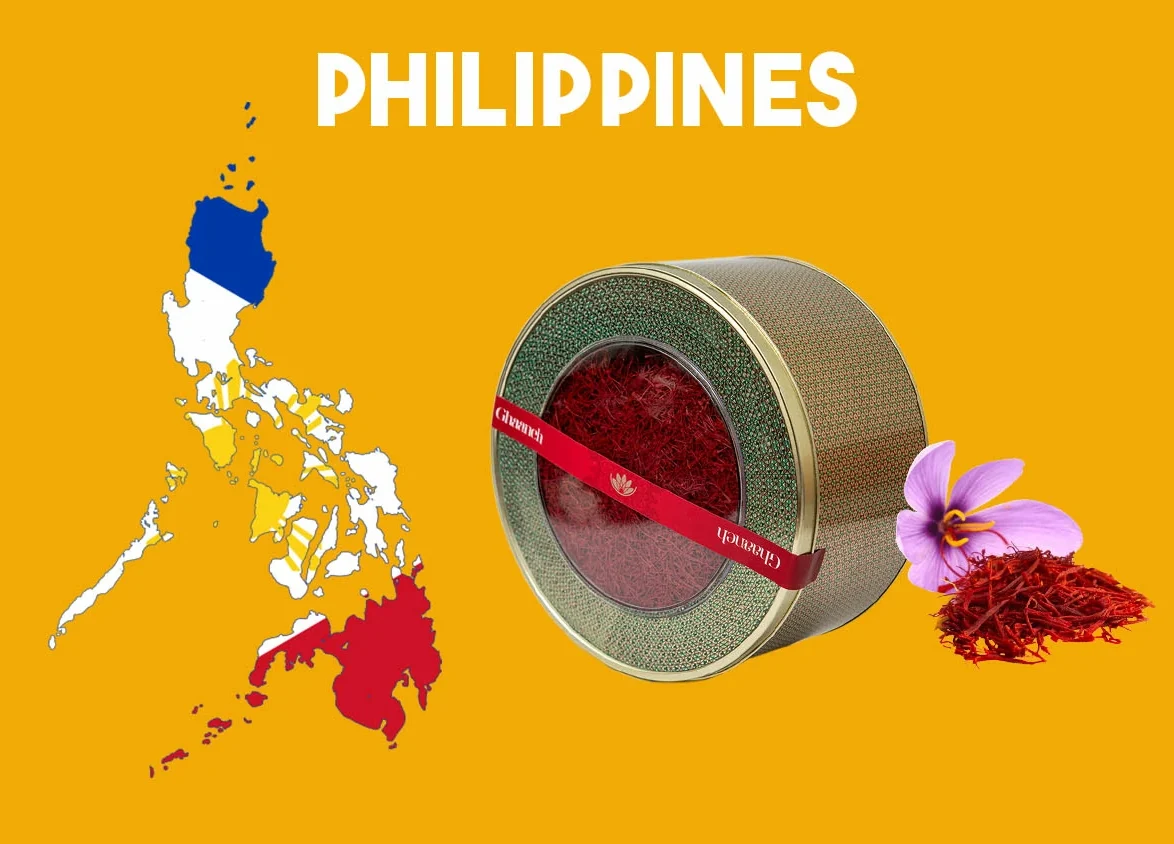
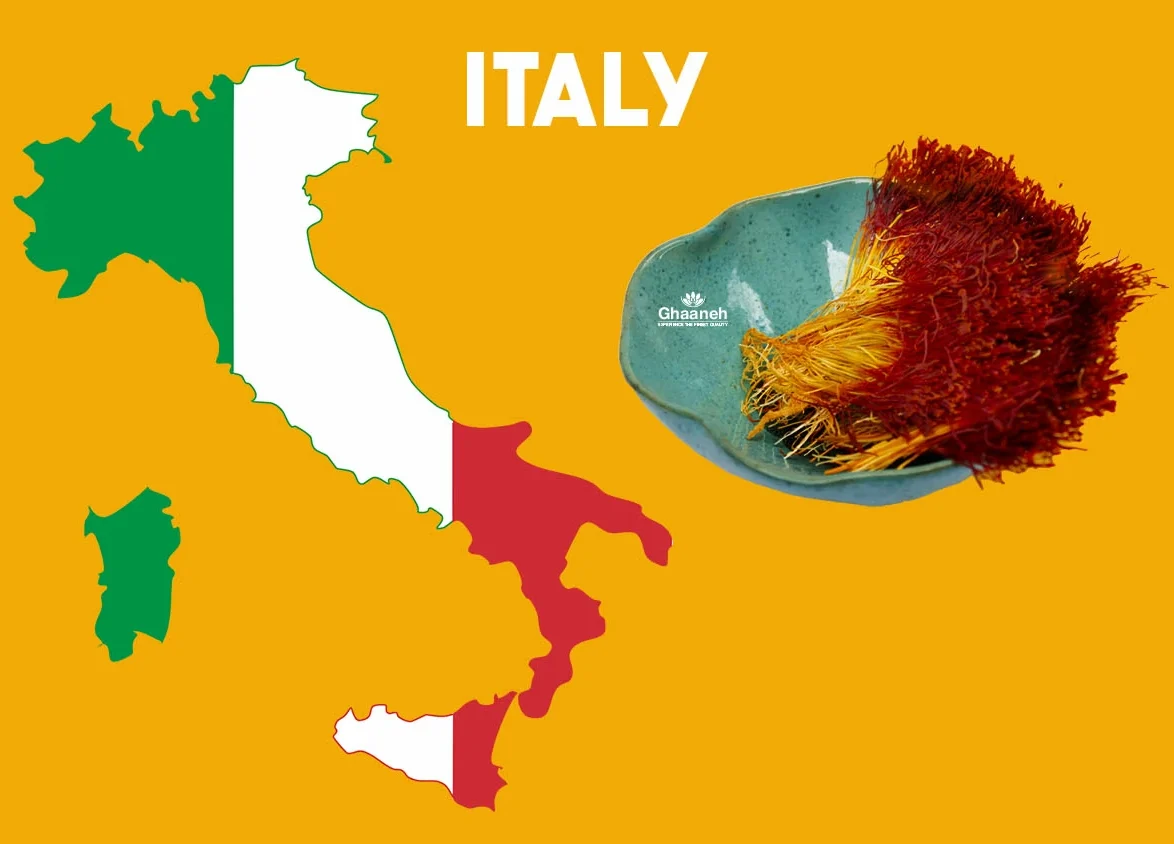



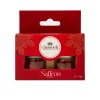
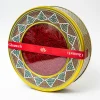
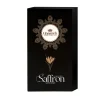
I appreciate your website, however I think you might check the spelling of a few of your postings. Even though I find it quite difficult to tell the truth because so many of them have spelling errors, I will most certainly return.
I leave a response each time I appreciate a article on a website or if I have something to valuable to
contribute to the conversation. Usually it is a result of the passion displayed in the article I browsed.
And on this article Saffron Nutrition, Dosage of Use & Side Effects.
I waas moved enouvh to post a comment 😛 I actualy do have a few questions for you if it’s okay. Is it simply me or do some of these responses come across like written by brain dead visitors?
😛 And, if you are posting on additional sites, I’d like to follow everything new you have to post.